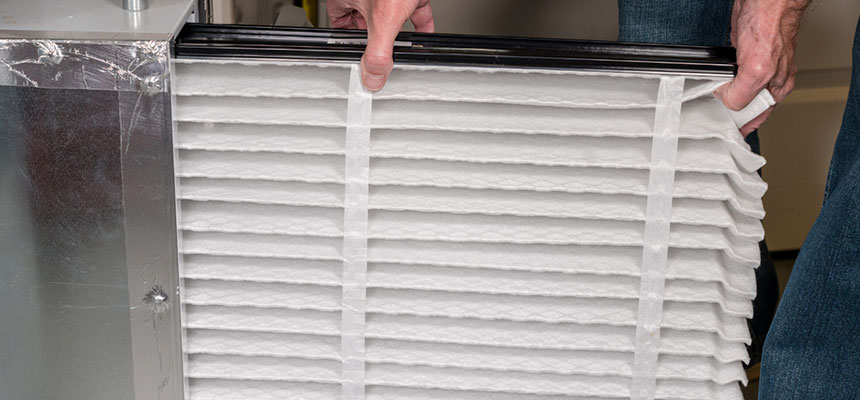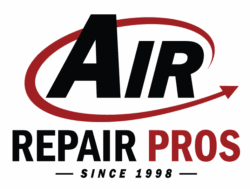When you encounter seasonal allergies, scheduling an emergency air conditioning repair may be the last solution you have in mind. After all, it’s easy to think that the allergen must be in the immediate environment, but not in the HVAC units. Thus, you’re likely to be living with the very particles that are causing your allergies — without you knowing it.
What Does Your HVAC System Have to Do with Allergies?
Your HVAC unit is capable of collecting the allergens, pollens, and molds that are causing you to be itchy, sneezy, and teary-eyed right now. That’s because HVAC systems are responsible for providing your entire home with proper air circulation. Naturally, when allergens get caught up in your HVAC equipment, they also tend to move around the house. As a result, most allergies tend to occur during springtime, when people turn on their air conditioning units for the first time after winter. Some allergies also come during winter, when the heater is in use. This is why people refer to them as “seasonal” allergies, as they only tend to show up when spring or winter starts. What people don’t immediately realize is that the allergies may not necessarily be because of the season at all, but because of all the allergens in the HVAC system. In this case, having your HVAC unit checked may be all it takes to stop your allergies. Fixing HVAC Issues and Allergies
Even though your HVAC unit may be working fine, sometimes, an emergency air conditioning repair can reveal why it’s not really working efficiently, and how it’s one of the main proponents of your allergies. Listed below are some of the things you can do to your HVAC unit to eliminate seasonal allergies altogether: 1. Dust Return Vents and Registers Regularly
People will usually dust their houses once per week, but they tend to forget about their return vents and registers. The problem is, these vents are responsible for circulating the air from your HVAC unit. Hence, if your vents remain dusty, then your entire home will be dusty. To solve this, make sure that you dust your vents using a damp rag that’s either treated or untreated. This will reduce dust particles that are likely to cause allergies. 2. Upgrade Your Filter
In most cases, poor air quality can easily be fixed by having high-grade filters. For best results, choose a filter that has a high MERV rating. The MERV system rates HVAC filters according to their ability to trap particles (MERV 1 to MERV 12). Higher-rated filters can trap even microscopic particles and pollens. If you wish to eliminate allergens, make sure that your filter is at least a MERV 10. Seek the help of a professional for installation to avoid problems with the unit. 3. Clean and Replace Your Filters on Schedule
Just because you have a filter that’s MERV 10 or higher, it doesn’t mean that you can leave it be, and expect it to continue running smoothly without your help. Make sure that you set aside the time to clean it every 1 to 3 months. You can also contact a professional for help if you think that your situation requires more advanced tools. 4. Eliminate Debris from Both the Indoor and Outdoor Units
The outdoor unit must be checked regularly because this is where the HVAC unit gets its air from. Remove all remnants of dust and debris to ensure that it doesn’t get inside your home when the circulation starts working. The same must also be applied to the indoor unit. Always keep the area around it dust-free to reduce the presence of allergens in your HVAC system. 5. Remove Molds
Mold spores begin to grow in moist and humid environments, which is why they’re drawn to HVAC systems. Not only do molds cause allergies, but certain varieties can even lead to serious illnesses and, at its worst, death. Molds can usually be found in the air ducts, evaporator coils, air handlers, drip pans, and drains. Though you can always check your HVAC unit and clean the molds yourself every few weeks, it’s best to contact a professional for more serious cases. Preventive HVAC Maintenance Is the Key
To ensure that you won’t have to deal with allergies or any other HVAC issues, it’s advisable to have plans for preventive HVAC maintenance. The key is to schedule a regular annual visit from HVAC professionals so they can detect problems with the unit before it affects your quality of life. Although there are maintenance measures that you can do on your own, such as regularly dusting your vents, it’s still necessary to have your unit inspected by an experienced HVAC contractor. Aside from being equipped with the right knowledge and having memorized the proper procedures, they also have a complete set of tools to get the job done. Say Goodbye to Seasonal Allergies by Properly Maintaining Your HVAC System
Seasonal allergies may be something that you’ve already gotten used to, but now you know that it’s actually possible to avoid them. You simply have to contact HVAC professionals to have your unit checked. If your allergies eventually subside after the treatment, then you may have just confirmed that your HVAC has always been the culprit. So, if you find yourself dealing with seasonal allergies for no obvious reason, but you remember that you haven’t had any HVAC maintenance checks in years, it might be time to schedule an emergency air conditioning repair. This can help reduce your allergy symptoms significantly, and with regular maintenance, it should even help eliminate it completely. Call Air Repair Pros today to know more about our services and check out our Comfort Club Membership! 
